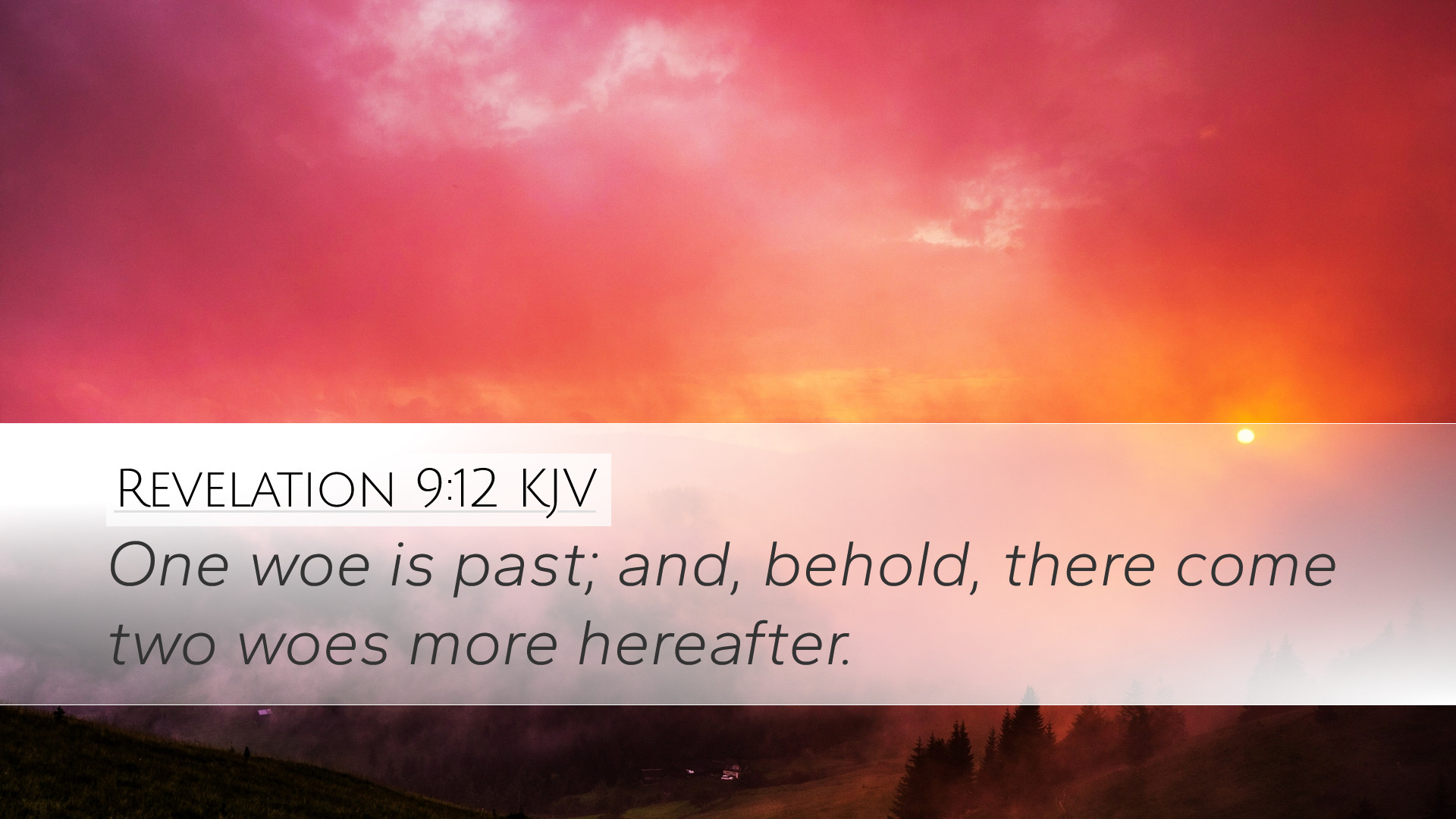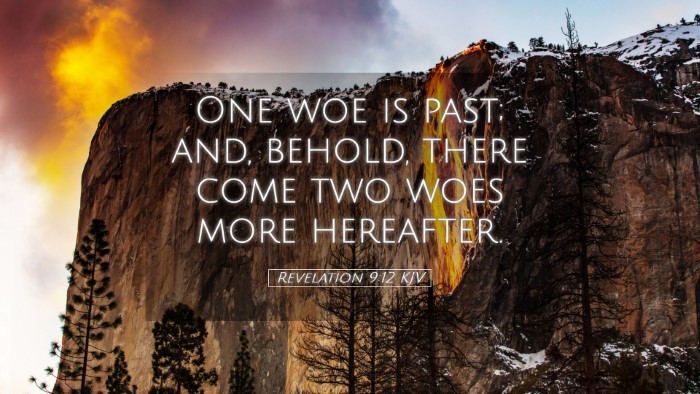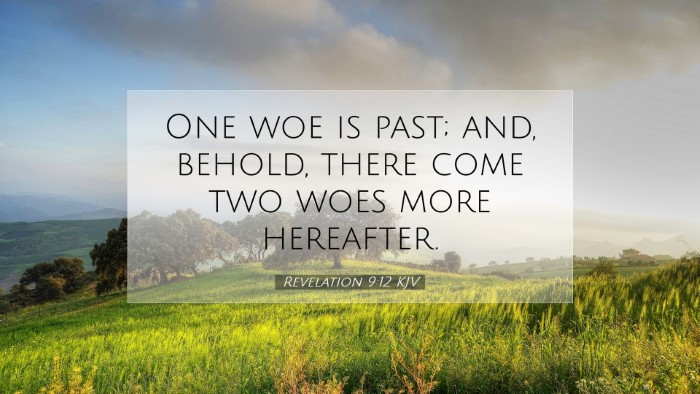Commentary on Revelation 9:12
Revelation 9:12 states: "One woe is past; and, behold, there come two woes more hereafter." This verse serves as a crucial transitional statement within the broader context of the apocalyptic vision presented in the Book of Revelation. In this commentary, we will integrate insights from notable public domain commentaries by Matthew Henry, Albert Barnes, and Adam Clarke.
Contextual Overview
Before delving into the particulars of this verse, it is essential to understand its position within the overall structure of Revelation. The Book of Revelation is rich in symbolism, portraying the ultimate victory of Christ over evil and the culmination of God's redemptive history. Chapter 9, specifically, describes the fifth trumpet judgment, which unleashes locust-like creatures upon the earth, symbolizing divine judgment and the intense suffering that comes with the rejection of God.
Exegetical Insights
Interpretation of "One woe is past"
The phrase "One woe is past" refers to the completion of the first of three woes resulting from the trumpet judgments. The locusts that emerge from the Abyss, described earlier in Revelation 9, symbolize impending judgment upon those who have turned away from God. These locusts are not merely physical creatures but represent spiritual entities that target humanity’s moral and spiritual degradation.
Significance of "two woes more hereafter"
The subsequent phrase, "there come two woes more hereafter," sets the stage for the remaining judgments and highlights the escalating severity of the judgments that follow. It indicates that while the first judgment has already taken place, the overarching theme of divine retribution continues in two additional phases. This serves to exemplify God's patience and justice, allowing humanity time for repentance but also affirming the inevitable consequences of sin.
Theological Implications
Divine Justice and Mercy
Drawing from Matthew Henry’s insights, the woe signifies God's justice executed upon those who persist in rebellion against Him. Henry emphasizes that God's mercy is always intertwined with His judgments. Although the judgments are severe, they are ultimately meant to lead the people back to repentance. The phrase calls us to reflect on the nature of God, who is slow to anger but not without resolution.
Understanding Woes in Eschatology
Albert Barnes notes that the mention of woes serves to highlight the futility of denying God's truth. Woes operate both as a warning sign and a reality check for those who live outside God’s will. He posits that the increase in woes signifies a deepening of depravity within humanity, mirroring the stages of apocalyptic history where divine wrath escalates in proportion to human rebellion.
Adam Clarke offers further theological insights regarding the nature of judgment. The structural model of the woes, as defined in Revelation, reflects a particular order in God's dealings with humanity. The woe serves as a reminder not only of judgment but also of the opportunity to turn toward God before the finality of the last woe. Clarke notes that this structured approach of escalating woes symbolizes God’s systematic way of dealing with the wickedness pervasive in the earth.
Pastoral Applications
For pastors and church leaders, Revelation 9:12 serves as a poignant reminder to address the reality of judgment in their preaching. There is a critical need to balance the message of God's love and grace with His holiness and justice. The progression of woes calls for a pastoral approach that encourages repentance and a deeper relationship with God, underscoring the urgency of the Gospel in a world facing judgment.
Encouragement Toward Repentance
Pastoral leaders are prompted to proclaim the message that God desires none to perish but that all should come to repentance. The warning embedded within the woes should inspire urgency in their teaching, particularly in addressing the signs of spiritual decay within contemporary society. Engaging the congregation with a call to return to righteousness aligns with the overarching narrative of Revelation, which emphasizes hope amidst judgment.
Final Thoughts
Revelation 9:12 delivers a sobering and profound reflection on the nature of divine judgment and mercy. It holds significant meaning for scholars, students, and theologians alike, reminding us of the seriousness of sin and the reality of God's impending judgment. Through the insights of Henry, Barnes, and Clarke, we see an intricate tapestry woven through this verse—one that maintains hope even in the face of judgment.
As we navigate through our understanding of Revelation, this verse encourages a deeper contemplation of how God interacts with humanity through justice, mercy, and the unrelenting call to repentance. In the light of Revelation 9:12, we are both warned and invited into a transformative relationship with the Creator, who, despite the woes to come, continually draws us toward Himself.


